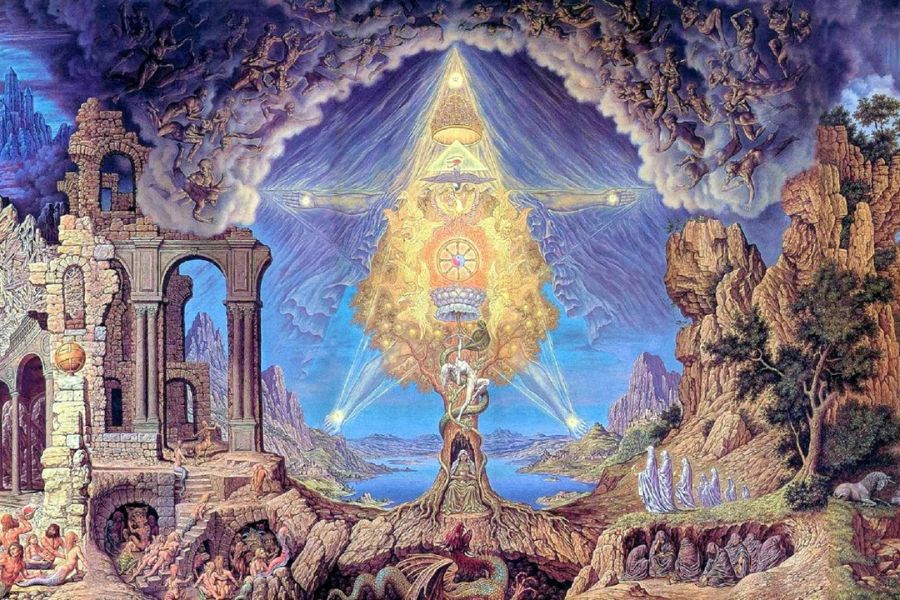In the Buddhist view, karma is not something predetermined or fatalistic, but rather a direct reflection of our own actions. It is believed that every experience we live is the result of what we have sown over time, and not of a fixed destiny.
This concept is deeply connected to the understanding of tendrel, or dependent origination, which describes the interdependence of all factors that give rise to any phenomenon or experience.
The Tibetan term tendrel translates as "interaction" or "interdependence," and reflects the idea that all events and phenomena exist because of multiple factors that relate to each other. Nothing arises in isolation, and all experiences are the manifestation of a complex network of causes and effects. This notion is central to understanding the Dharma and the transience of existence within the cycle of samsara—the cycle of birth, death, and rebirth.
One way to illustrate this concept is to think of the sound of a bell. When we hear the sound, we may ask: what causes it? The bell itself, the clapper, the hand that moves the bell, or our ears that hear it? None of these factors is sufficient alone; all must interact simultaneously for the sound to manifest. Similarly, our experience of life arises from the interaction of multiple interdependent factors, which do not occur sequentially, but coexist.
This process of dependent origination applies to our own lives and all the appearances of samsara. The twelve links of dependent origination describe how our states and experiences are interconnected and how causes and results mutually originate. It is not a linear chain of cause and effect, but a network of factors that coexist, creating an illusion that keeps us trapped in the cycle of samsara.
Within this cycle, everything we experience is conditioned by karma and the interactions between the various factors surrounding us. The reality we experience is the conventional truth—the truth we believe to be true within our everyday experience. However, behind these appearances lies emptiness, which represents the true nature of reality.
Understanding dependent origination guides us beyond the illusion of the relative level, allowing us to attain the peace and freedom that come from unconditionality. When we understand dependent origination, we also begin to understand emptiness, and through that, we free ourselves from the limitations of samsara.
Wisdom, therefore, is not fundamentally separate from illusion. Samsara and nirvana are not contradictory, and it is often said that there is a form of wisdom latent even in ignorance. Reason and logic can take us to a certain point, revealing the truth, but ultimately they must be let go of as we realize the emptiness.
However, it is crucial to be careful not to fall into the trap of nihilism. A correct understanding of emptiness is not a denial of existence but the realization that things do not have a permanent or fixed existence. If we believe that everything is empty and meaningless, that even the state of Buddhahood has no reality, we fall into a deeper mistake than believing that things have a concrete and unchanging existence.
The true vision of the middle way lies between the two extremes: realism, which believes that things exist in a fixed way, and nihilism, which denies them completely. By correctly understanding emptiness, we can transcend these mistaken views and attain enlightenment. As Saraha said: "To consider the world as real is a brutal attitude. To consider it as unreal is even more wild." And Nagarjuna adds: "Those who merely imagine emptiness are incurable."
Ultimately, the understanding of karma and dependent origination leads us to a deeper vision of our existence and guides us on the path to freedom, transcending the limitations of samsara and realizing the ultimate truth.




















